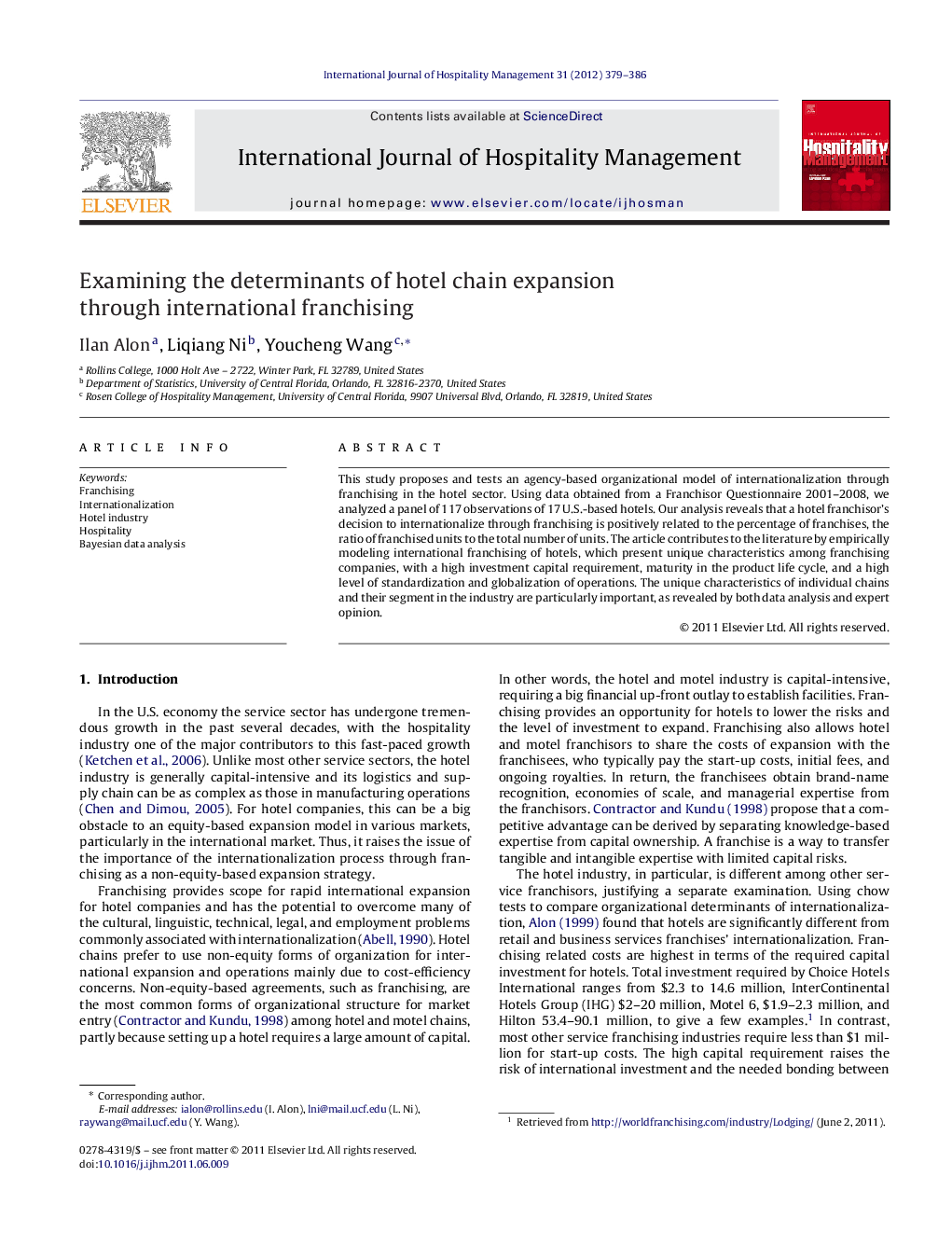| Article ID | Journal | Published Year | Pages | File Type |
|---|---|---|---|---|
| 1009764 | International Journal of Hospitality Management | 2012 | 8 Pages |
This study proposes and tests an agency-based organizational model of internationalization through franchising in the hotel sector. Using data obtained from a Franchisor Questionnaire 2001–2008, we analyzed a panel of 117 observations of 17 U.S.-based hotels. Our analysis reveals that a hotel franchisor's decision to internationalize through franchising is positively related to the percentage of franchises, the ratio of franchised units to the total number of units. The article contributes to the literature by empirically modeling international franchising of hotels, which present unique characteristics among franchising companies, with a high investment capital requirement, maturity in the product life cycle, and a high level of standardization and globalization of operations. The unique characteristics of individual chains and their segment in the industry are particularly important, as revealed by both data analysis and expert opinion.
► This study proposes and tests an agency-based organizational model of internationalization through franchising in the hotel sector. ► Data based on a panel of 117 observations of 17 U.S.-based hotels were analyzed. ► A hotel franchisor's decision to internationalize through franchising is found to be positively related to the percentage of franchises, the ratio of franchised units to the total number of units.
